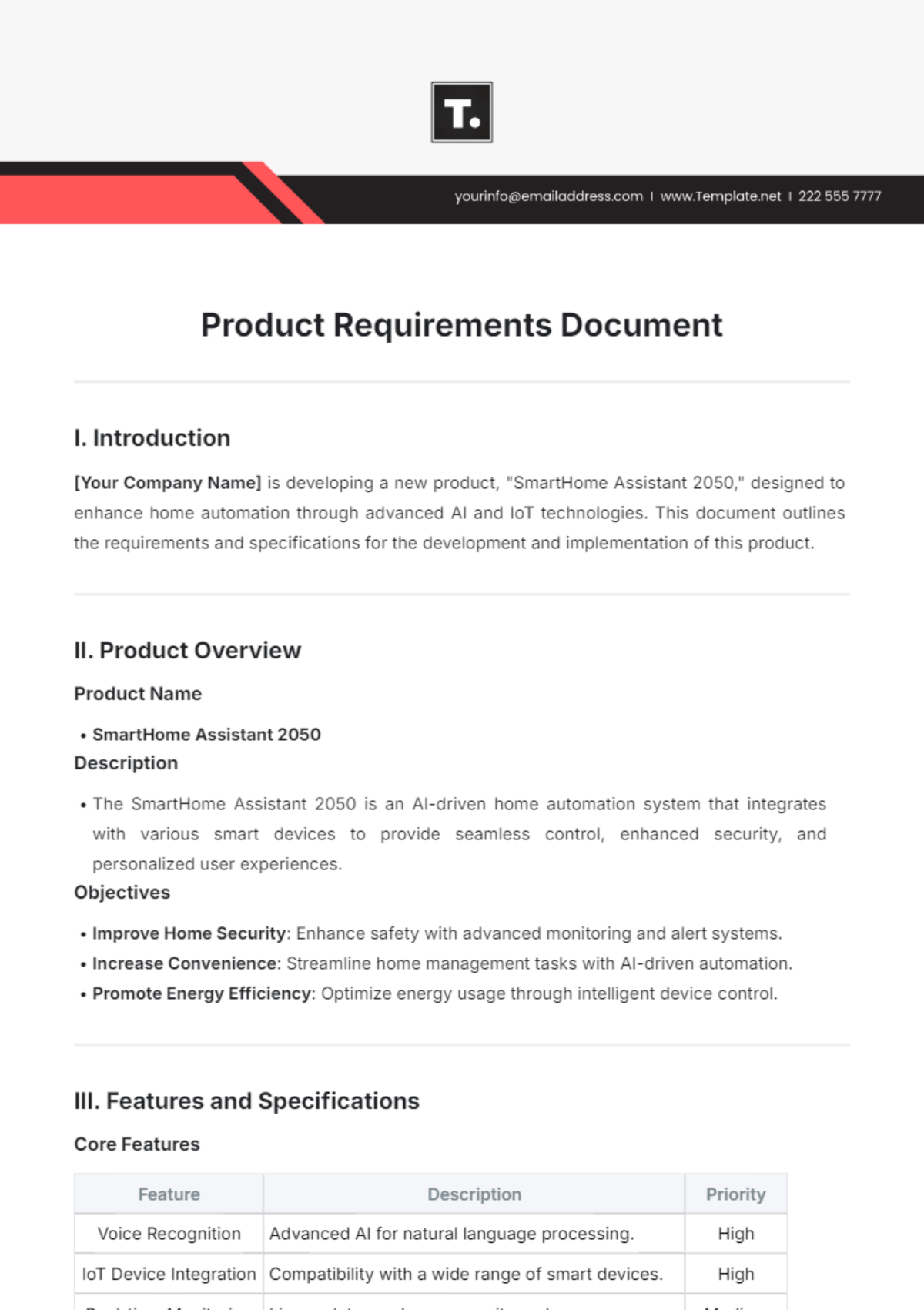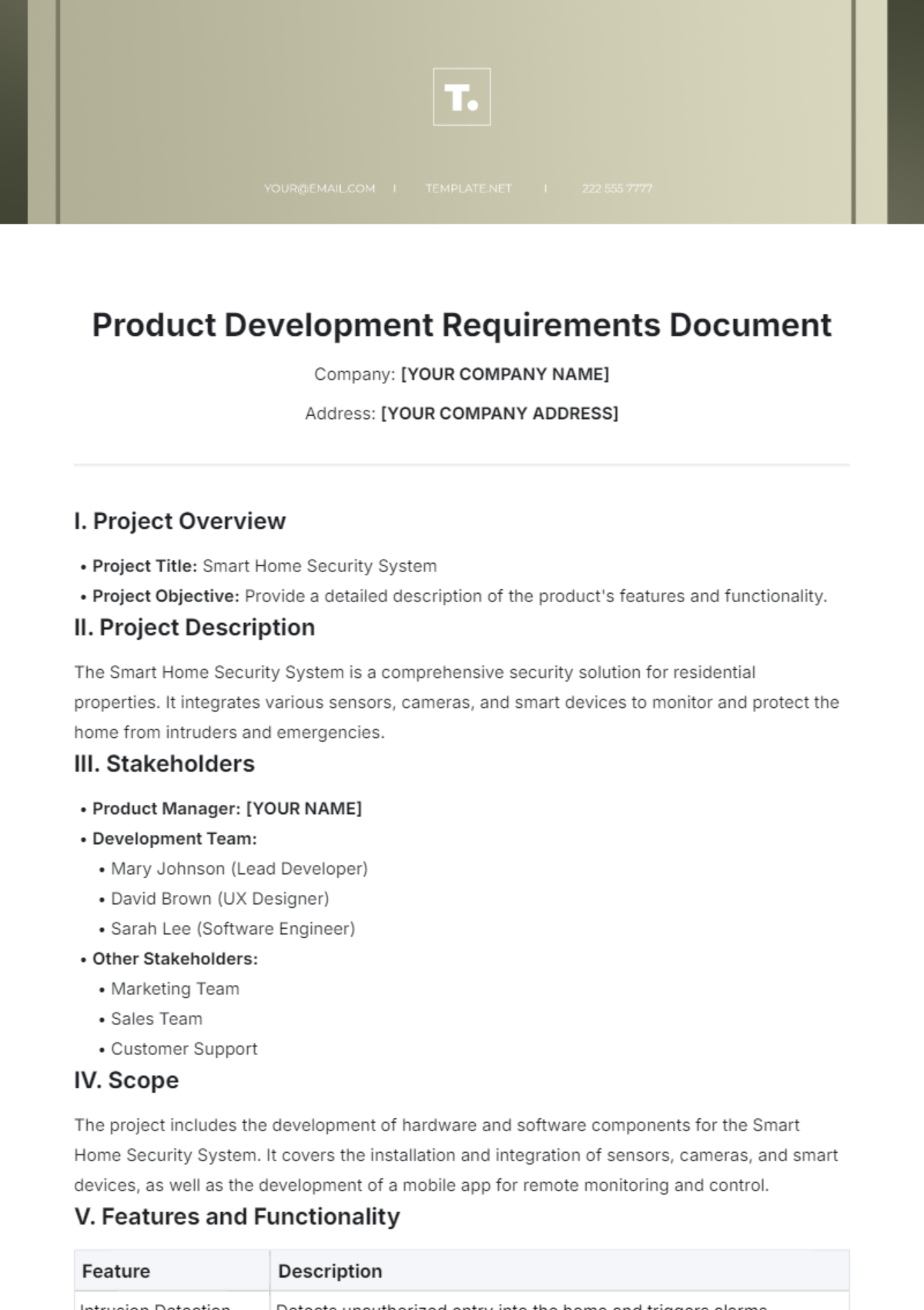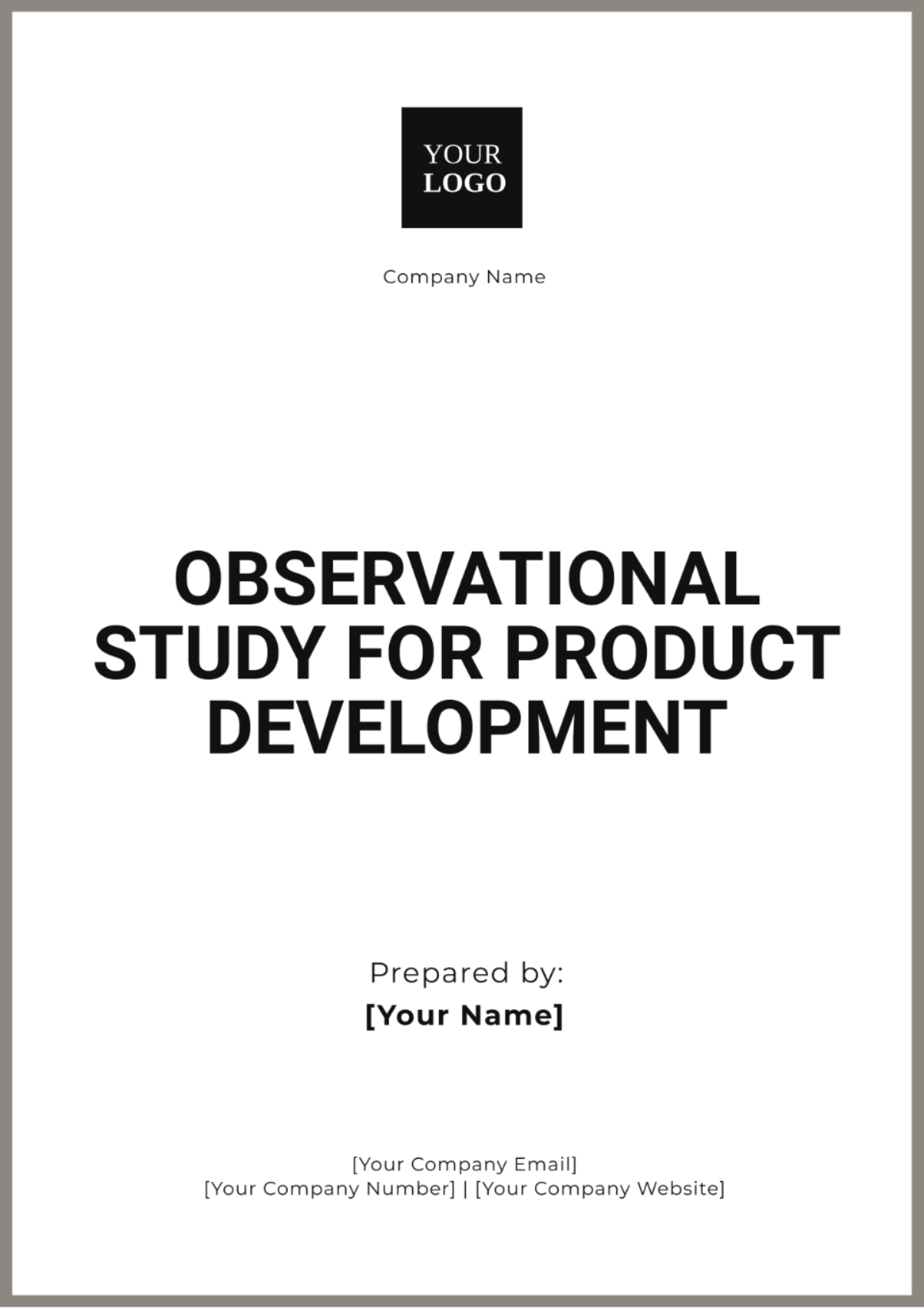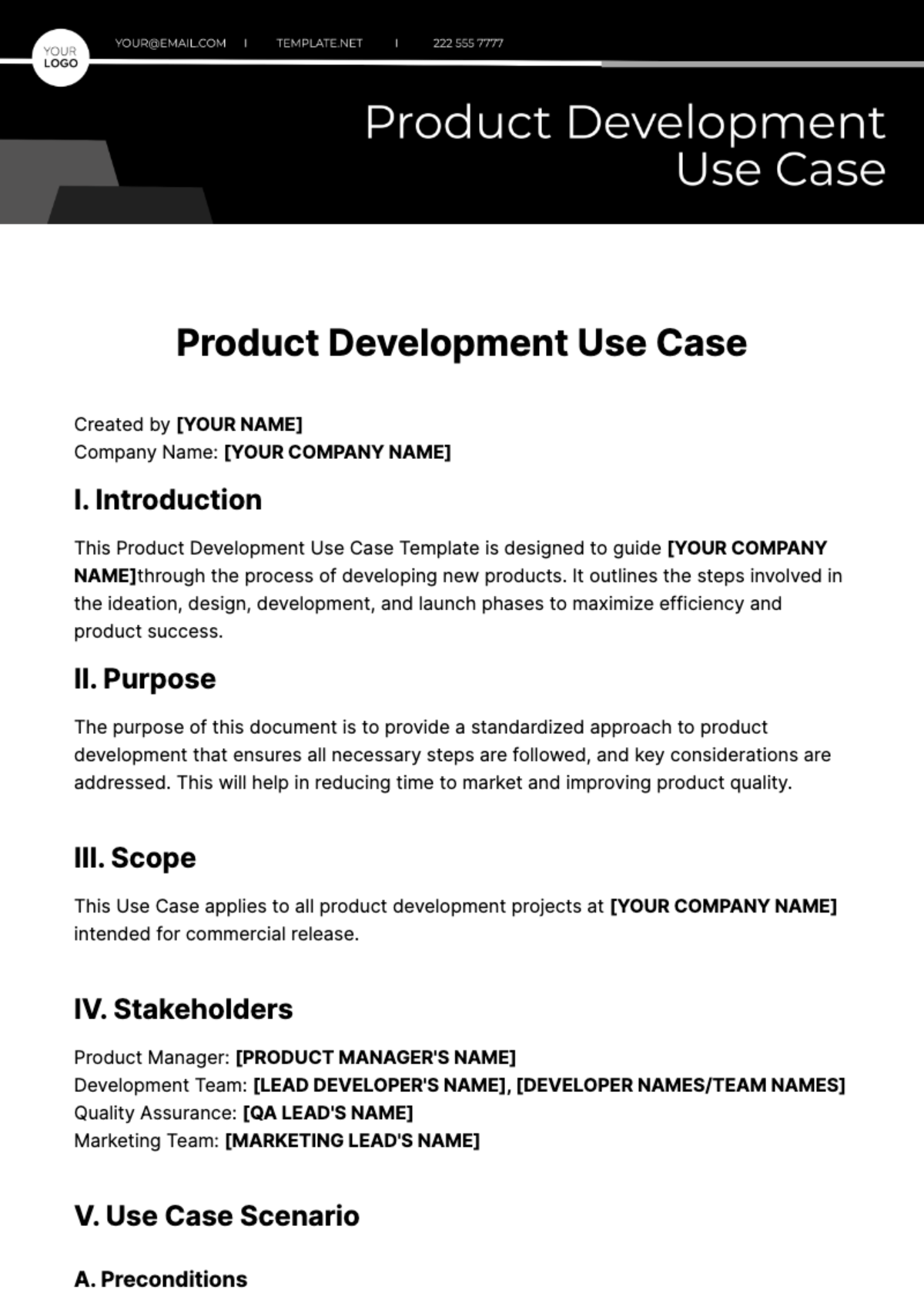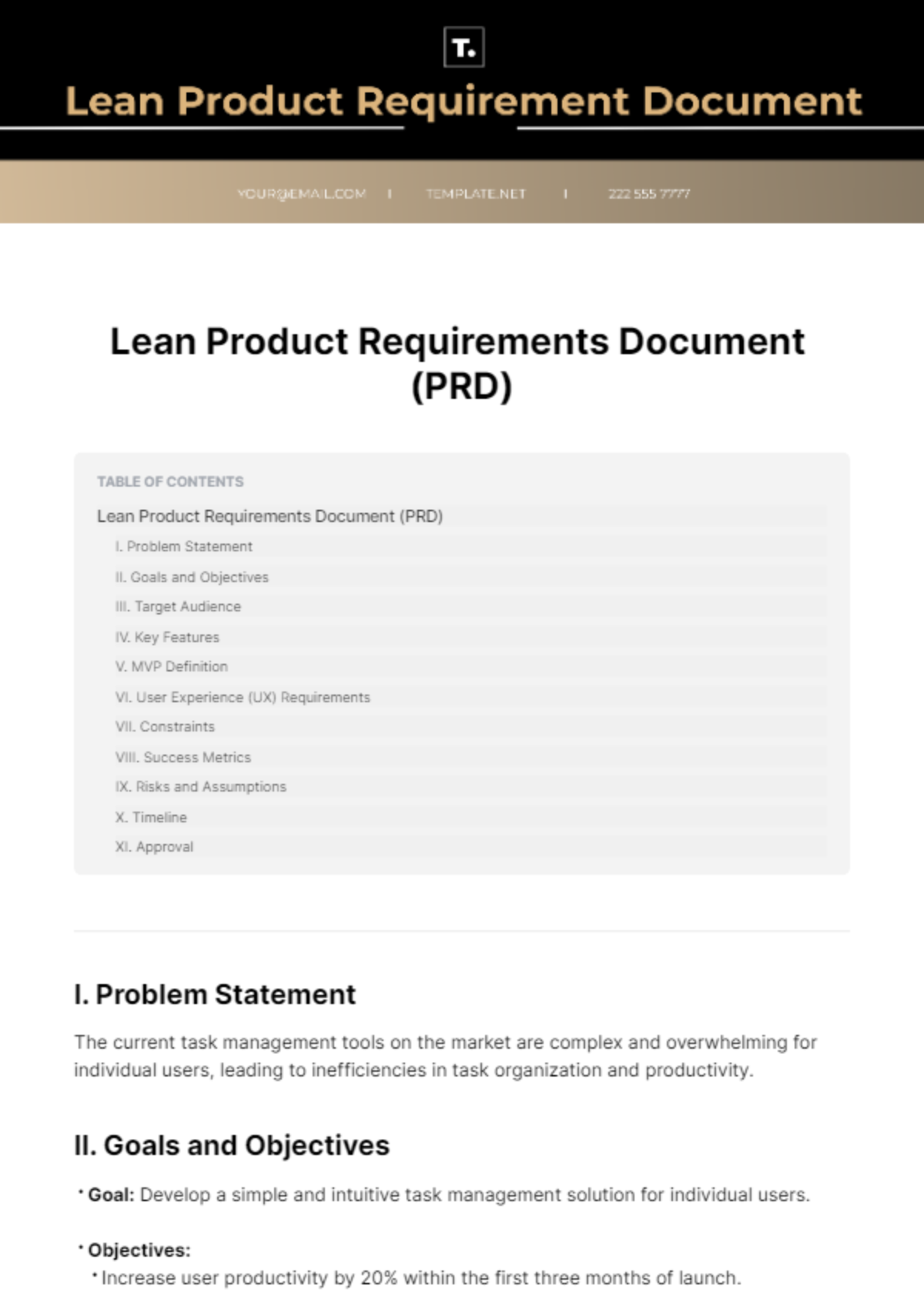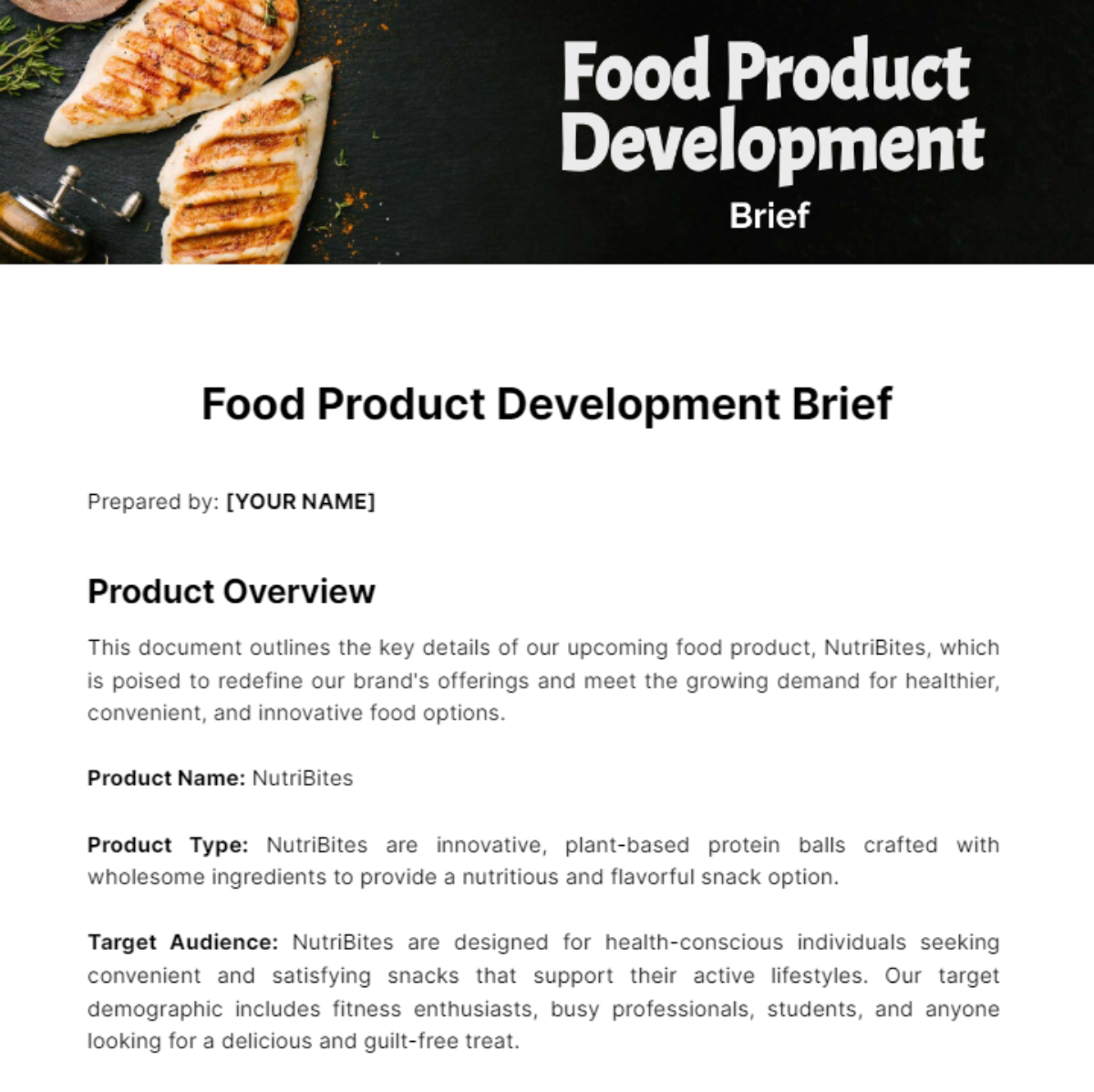Free Product Development Use Case Template
Product Development Use Case
Created by [YOUR NAME]
Company Name: [YOUR COMPANY NAME]
I. Introduction
This Product Development Use Case Template is designed to guide [YOUR COMPANY NAME]through the process of developing new products. It outlines the steps involved in the ideation, design, development, and launch phases to maximize efficiency and product success.
II. Purpose
The purpose of this document is to provide a standardized approach to product development that ensures all necessary steps are followed, and key considerations are addressed. This will help in reducing time to market and improving product quality.
III. Scope
This Use Case applies to all product development projects at [YOUR COMPANY NAME] intended for commercial release.
IV. Stakeholders
Product Manager: [PRODUCT MANAGER'S NAME]
Development Team: [LEAD DEVELOPER'S NAME], [DEVELOPER NAMES/TEAM NAMES]
Quality Assurance: [QA LEAD'S NAME]
Marketing Team: [MARKETING LEAD'S NAME]
V. Use Case Scenario
A. Preconditions
Market analysis completed
Initial product concept approved by [YOUR COMPANY NAME]
B. Basic Flow
Idea Generation: Stakeholders brainstorm and propose initial product concepts.
Feasibility Study: Analyze the technical and economic feasibility of the proposed product.
Product Design: Design team develops prototypes based on approved concepts.
Prototype Testing: Testing team evaluates prototypes and provides feedback.
Product Revisions: Necessary adjustments are made based on testing outcomes.
Final Approval: Top management reviews and approves the final product design.
Production: Manufacturing begins based on the approved specifications.
Market Launch: Marketing team executes the launch plan and releases the product.
Post-Launch Review: Evaluate the product’s performance and gather customer feedback.
C. Alternative Flows
If at any stage feedback indicates significant issues, the project may return to earlier phases (e.g., from Prototype Testing back to Product Design).
VI. Postconditions
Successful product launch and steady sales growth. Continuous monitoring and adopting to feedback for future improvements.
VII. Quality Requirements
Product must meet all relevant safety and regulatory standards.
Product should satisfy the initial quality metrics and KPIs defined in the feasibility study.
VIII. Assumptions
Market conditions will remain stable during the product development and launch phases.
Resource availability for each phase of the project is ensured.
IX. Constraints
Budget limitations may restrict scope of product features.
Time constraints for development and launch to meet market windows.
X. Approval
Name | Title | Signature | Date |
|---|---|---|---|
[APPROVERS NAME] | [APPROVER'S TITLE] | [SIGNATURE PLACEHOLDER] | [DATE PLACEHOLDER] |
